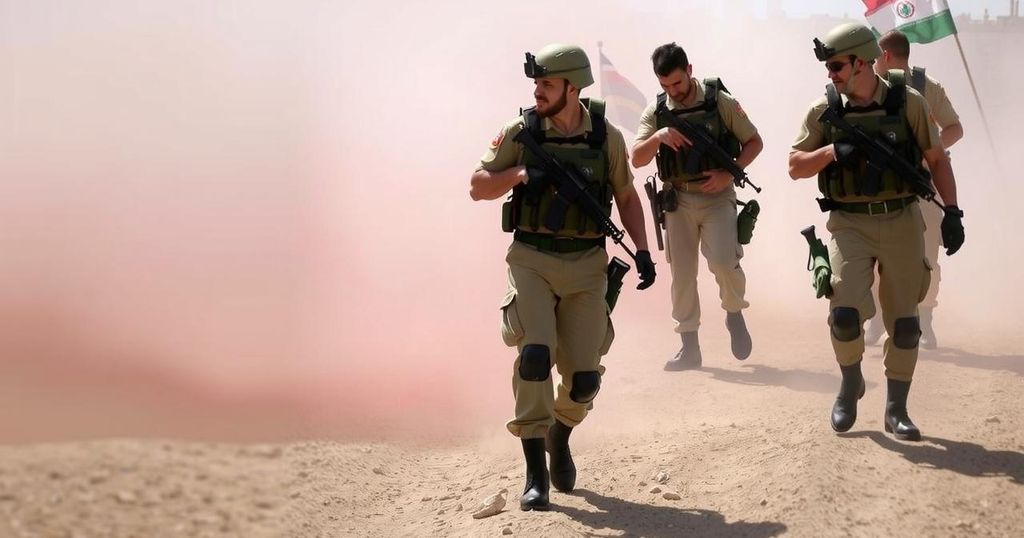Iran has withdrawn nearly all its forces from Syria after rebels achieved a significant victory over the Assad regime. This withdrawal marks a critical reduction in Tehran’s influence in the region. Key rebel leaders indicate that this shift will have long-lasting impacts on Iran’s strategic positioning and operational capabilities in the Middle East.
Reports indicate that Iran has nearly fully withdrawn its forces from Syria following a significant victory by rebel factions against the Assad regime. This withdrawal marks a substantial reduction of Tehran’s influence in the region, as nearly all Iranian troops have been ordered to leave or have fled the country. The rapid advance of rebel forces, which captured strategic territories in a mere eleven days, has been evidenced by images of abandoned military equipment on the Syrian-Lebanese border.
Barbara Leaf, the United States State Department’s senior official on Middle Eastern affairs, confirmed the withdrawal, stating, “Pretty much, yes” to inquiries regarding the Iranian military’s presence in Syria. This development is critical, given Syria’s role as Iran’s primary ally in the Middle East and a hub for Tehran’s operations against US and Israeli interests.
The Iranian presence in Syria facilitated the establishment of Hezbollah bases, most of which have been adversely impacted either by Israeli strikes or rebel incursions. The defeat of the Assad regime, which aligned closely with Iranian interests, has severed Iran’s key alliance in the region. The newly formed Sunni leadership is inherently opposed to Iran’s influence and President Bashar al-Assad.
Rebel leader Ahmed al-Sharaa has expressed optimism regarding their success against Assad, asserting that it has set back Iran’s regional ambitions by decades. Observers believe the ongoing animosity towards Tehran among rebel leaders will hinder Iran’s attempts to regain its foothold in the region, particularly through its Islamic Revolutionary Guard Corps (IRGC).
As Iranian hard-liners react to these developments, they have proclaimed a need for counter-revolutionary efforts in Syria. The IRGC’s media outlet referred to the new Syrian government as “takfiri terrorists,” invoking terminology historically associated with ISIS. Following these developments, many anticipate that unrest in Damascus could be imminent, as Iran grapples with the new dynamics in Syria and ongoing external pressures from other international players.
The context of this article revolves around the recent developments in Syria following the collapse of the Assad regime. Iran has been a significant military supporter of the Assad government, providing troops, equipment, and strategic guidance in its efforts to maintain control over the nation amid an ongoing civil conflict. The recent surge in rebel activity that successfully overthrew Assad has directly impacted Iran’s presence, leading to its military’s hasty retreat. This strategic loss underscores the shifting power dynamics in the Middle East, as Iran’s longstanding influence appears to be waning, particularly with the emergence of an anti-Iranian regime.
In conclusion, the withdrawal of Iranian forces from Syria represents a pivotal moment with profound implications for Tehran’s political and military influence in the Middle East. The rapid succession of events leading to the fall of the Assad regime has not only diminished Iran’s strategic foothold but has also set the stage for potential instability in the region, as rebel factions now solidify control and redefine alliances. The narrative moving forward will likely center on Iran’s attempts to counteract these developments amid mounting pressures both domestically and from external adversaries.
Original Source: nypost.com






